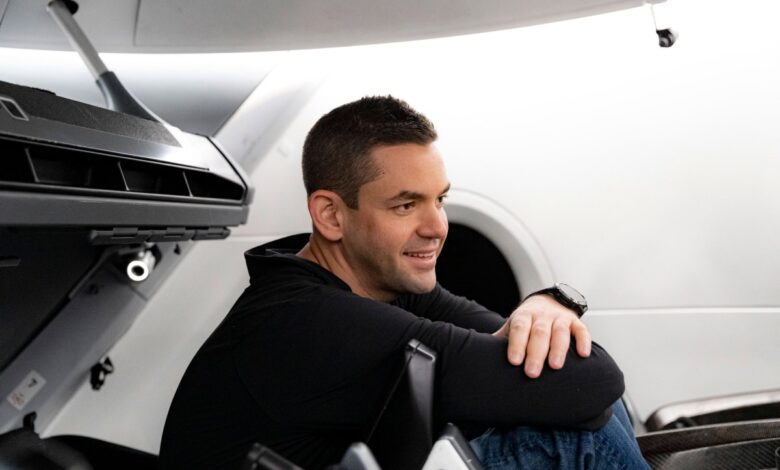A billionaire private astronaut and SpaceX supporter may be the next head of NASA

Incoming President Donald Trump has nominated Jared Isaacman, a billionaire businessman and private astronaut, to lead NASA in what could be one of the most consequential periods in the agency’s history.
During the four years of Trump’s second term, NASA will have to navigate a number of significant changes and challenges, including the ongoing Artemis program and the increasing commercialization of space, and potentially the deorbiting of the International Space Station. In all likelihood, it will also be the period when SpaceX’s Starship begins commercial missions and possibly even its first uncrewed trip to Mars.
Isaacman, founder and CEO of payment processing platform Shift4, has been one of the staunchest advocates of commercial spaceflight. Under its Polaris Program initiative, it supported two separate orbit missions carried out by SpaceX. During the most recent mission, which took place in September, Isaacman and another member of the four-person crew performed the first private space walk using SpaceX’s new extravehicular activity suits.
He has pushed a proposal (which he said he would fund) to launch a private mission to boost the aging Hubble Telescope into orbit. (NASA did not accept the offer.) And he has been a big supporter of SpaceX’s plans to make life multiplanetary.
“If there is a technical path to ensuring the survival of humanity, and Starship appears to be the closest we have come, it seems irresponsible not to follow it.” said in a post on X in August.
Isaacson’s appointment to this position would almost certainly be of immeasurable benefit to SpaceX and Elon Musk, who, coincidentally, is in what is supposedly an influential advisory role with President-elect Trump.
Other public posts on Many of these initiatives have exceeded their budgets; some, like the lunar ice explorer Viper, have been canceled as a result. Others, such as the upcoming manned missions of the Artemis program, have simply been severely delayed.
Regarding news last year that the staff of an operational space mission could be cut due to budget concerns, isaacman saidreferring to the Artemis program, “I’m confused as to how we can fund billions per launch of a disposable megarocket, fund two lunar landing modules to avoid hurt feelings, but can’t keep New Horizons staff funded at current levels.”
Isaacman, who also founded the defense contractor Drake International, has also noted the need for the United States to remain competitive with adversary nations, particularly China, in the space realm. He has frequently commented on China’s domestic spaceflight capabilities, saying last February that if that country takes humans to the Moon before the return of the United States, “it will be an immense wake-up call with real internal and geopolitical ramifications.”
Like other key appointments for the incoming administration, Isaacman will still need to be confirmed by the Senate in order to take office. He would replace former Sen. Bill Nelson, who took over in 2021 after being appointed by President Joe Biden. Isaacman told Shift4 employees that he would remain CEO until confirmed.
In a statement, Isaacman said NASA would help usher in “an era in which humanity becomes a true spacefaring civilization.”
Personal opinion:
“If a private astronaut who supports SpaceX becomes the next NASA chief, it could represent an exciting shift in U.S. space strategy. Having a strong private-sector figure could foster public-private collaboration. However, it will be important to watch how this shift impacts NASA’s political orientations and priorities for scientific research and long-term projects.”
